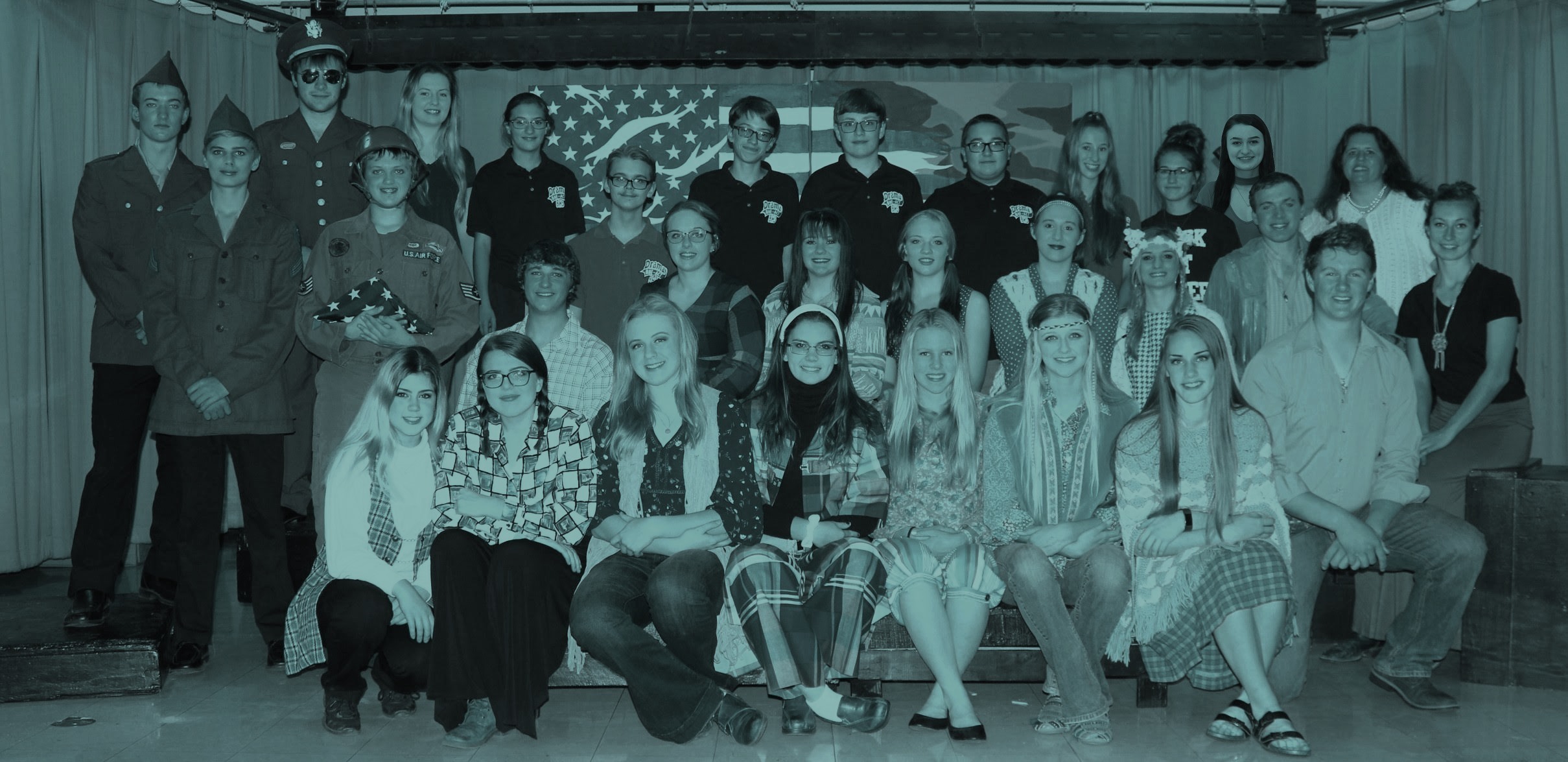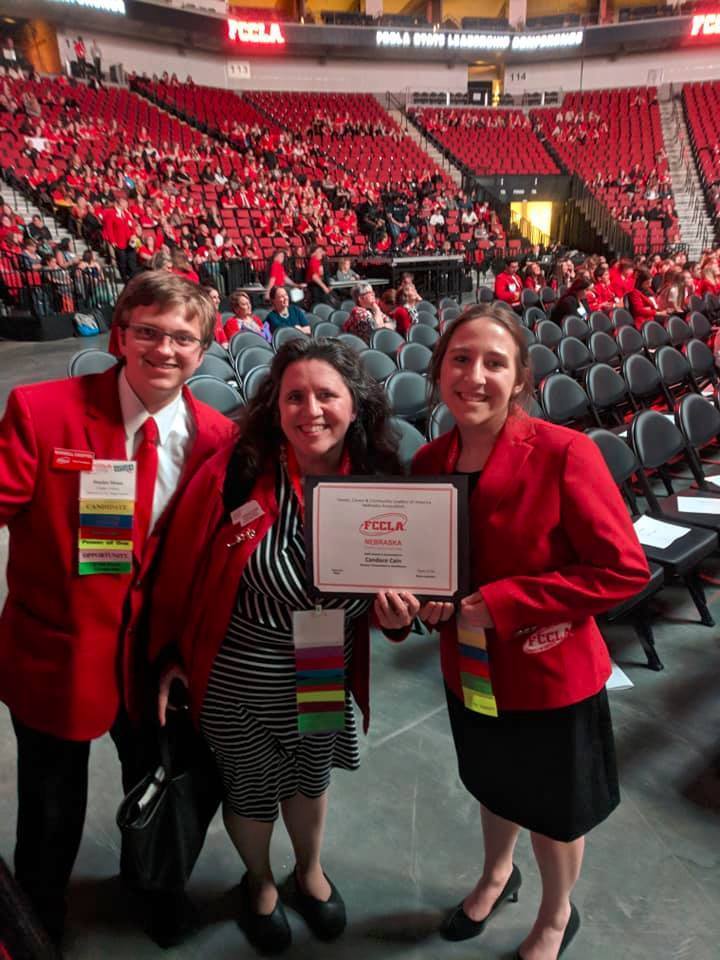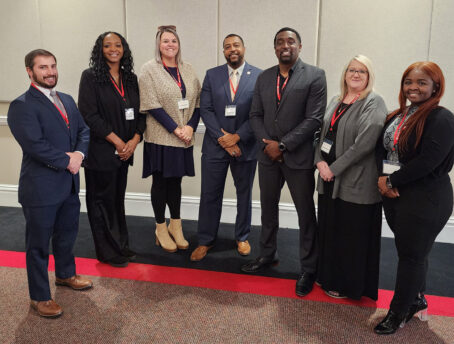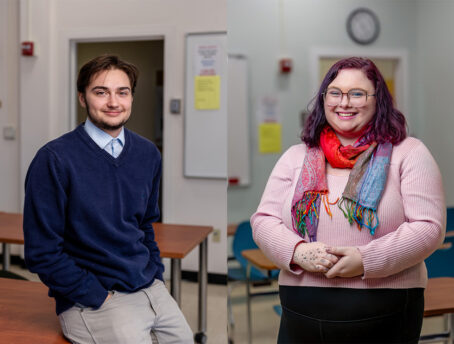Over the course of the campaign, I Am A Rural Teacher has collected over 100 user-submitted stories from around the world. Recently, we began conducting short interviews to better highlight the stories of rural teachers through more in-depth conversation. Candace Cain, from Burwell, Nebraska, submitted to the campaign last year, and reached out again eager to share a deeper look into her perspective as a rural teacher. Her story highlights not just why she became a teacher, but how her community continues a legacy of school-community collaboration and support for students.
Burwell is a community of about 1,200 people, and the public school has a student population of less than 150. Because of this smaller environment, the community is very tight-knit and people tend to know each other through connections made by previous generations.
“I am actually a product of Burwell Public Schools, and we're kind of in an interesting situation right now that a large majority of the faculty actually graduated from here. The full English department of three teachers are all alumni,” Candace shares. “To teach in the classroom where you yourself were the student for four years...it's a humbling experience. It's kind of an honor because you're continuing the legacy and the culture and the expectations of a community...and also elevating it because you know where it has been, so you can take it one step further.”
Like many rural teachers we’ve spoken with, Candace has a long history of teaching in her family, which strongly influenced an early desire to be a teacher.
“I always knew [I wanted to be a teacher]. My mom actually stood and taught in Burwell Public in the early 1960s. My dad, mom, and multiple family members were even my Sunday school teachers...and various family members [were] our 4-H project leaders. So, there's always been a learn and go type [thing],” she says. “As a little kid I would always play a lot of school on the front porch with my dolls and stuffed animals, and it was always fun.”
She explains that despite her love of playing teacher, she struggled in school due to dyslexia. These struggles have informed her approach to teaching as she now instructs high school English and Theatre:
“It was fun to play, but then when I'd actually go to school it was kind of hard because for a lot of my early academic career in elementary school I didn't realize that I was dyslexic. So, two factors led me to going into teaching: the sure fact that I had fun working with kids and students (and my own stuffed animals that were my fake students), [and] the fact that I could really empathize with the kid that struggled. I always have tried to be an advocate for students because I know what it was like to be that struggling student that hated reading. And guess what I'm teaching right now? Reading!”

A common story we hear as we listen in across the country is that of the rural returnee, and Candace shares that she gladly holds that title as well. “I never thought I would be back here, but to be back here...it has worked out so well in so many ways. I am teaching, now, my classmates’ kids...so that's kind of a fun perspective,” Candace says. With a laugh, she adds, “My class had its 25th class reunion here, and I actually saw more of my classmates at parent-teacher conferences than I did at the reunion.”
Candace shares that one rural advantage is the ability to collaborate with her colleagues, as well as community members, to give students a full school experience despite the small size of the faculty. Through this collaboration, students are exposed to the full breadth of opportunities in their school and want to get involved.
“It's working to figure out what works with the resources we have, and the faculty, but also the best way to serve students. I coach speech, one act, and advise FCCLA (Family, Career and Community Leaders of America) on the side. So, when you're a small town teacher, a rural teacher, you learn to wear many hats, and...even use some of the opportunities of the things you coach and advise and bring those as experiences into the classroom,” she says. Thinking of how different activities and courses blend together, she shares, “Almost all of my freshmen in English class are now going out for one act because they had fun listening to what I was prepping for the one act play, and they were like, ‘Yeah, we want to be a part of it!’ That's one of the luxuries, is that you can pull the classroom experience into the community side, or you can pull the classroom experience into other types of aspects of the curriculum in the building, and really tag-team things. [This] works really well in a rural setting."

She also believes that her small class sizes allow her to help students on an individual level and guide them like she was as a child. “There’s always those moments where you can find, and just in sharing your story, let kids know, ‘Hey, it's okay to struggle at school.’ You can...see it almost with every student in a different way,” she says.
Her empathic approach to teaching, and a focus on supporting students that face challenges like she did in school, has inspired children to become educators themselves. “[A student] said, ‘You know, Miss Cain, in freshman English you said we were gonna have to give speeches, and...that was just really really super scary, and I couldn't believe you were going to hold us to that expectation.’ [Now,] she's even going into education herself,” she shared.
She goes further to explain how her methods help her students feel at ease in the classroom:
“I'm the type of teacher [that] chunks things down, so it's doable small steps...Then the kids realize that if you put parts A, B, C, and D together, it all makes the final product. Students...feel better about a process knowing that it's either routine, or there's something in it that they can control, maybe in the elements of their own world where there's an uncontrollable element.”

Finally, Candace shares that to her, “rural” means “advantage,” particularly because of the relationships built within the community:
“I know for a lot of people it means ‘disadvantage.’ But I think for me, being rural has always meant to be an advantage. When you grow up in a small community...there's always someone there who has your back. There's always going to be someone there to help you out.”

This spirit of relationship-building extends into the classroom, so both community and school continue to thrive in tandem, even as generations come and go.
“In a school setting...you can be multiple things to a student at the same time; you can be their teacher, but then they see you in the community as a community leader, but then in the end of the day, you were the person that graduated with their mom and dad. Or...you are that person that, even though you taught them 10 years ago, they come and walk back into your classroom because it's that small rural mentality of, ‘Hey, yeah, you're still my teacher.’”
We are grateful to Candace for sharing her story with us as an inspiring tribute to the power of community legacy in rural schools. If you would like to share 30 minutes of your time for an interview, please reach out to us at info@ruralschoolscollaborative.org. The I Am A Rural Teacher campaign is a collaborative effort with the National Rural Education Association and made possible through a grant from the Bill & Melinda Gates Foundation.




